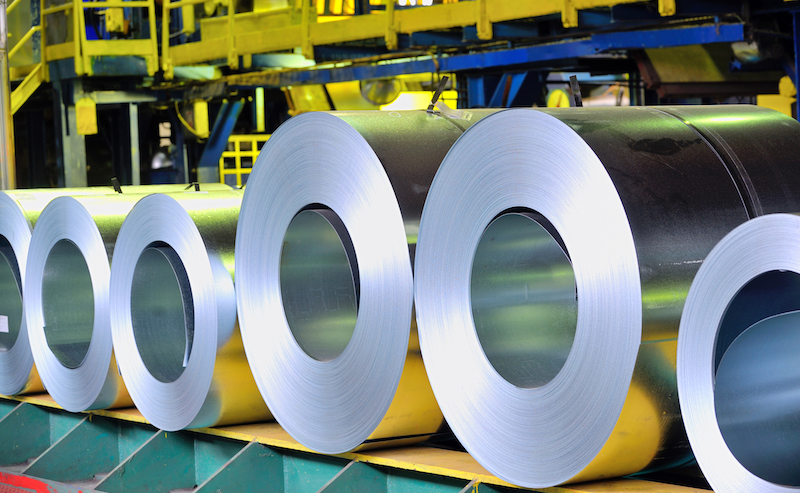
Scholar argues that Trump’s steel tariffs and the responses from other countries endanger the free trade system.
The United States is at war with free trade. In the past year, the Trump Administration’s steel and aluminum tariffs have affected hundreds of billions of dollars of exported goods around the world.
But one scholar argues in a recent paper that the problem is much bigger than a fight over tariffs. If global leaders are not careful, the current trade wars involving the United States could threaten the stability of the World Trade Organization (WTO) and the free trade system it protects, argues Yong-Shik Lee, the director of the Law and Development Institute.
In March 2018, President Trump announced the first round of tariffs on imported steel and aluminum products, drawing criticism from trading partners around the world. They viewed the tariffs as a blatant violation of WTO rules. Yet, the actions countries took in response to the tariffs—retaliatory tariffs and quota agreements—do just as much to undermine the WTO and the free trade system, writes Lee.
The Trump Administration issued its initial tariffs under Section 232 of the Trade Expansion Act of 1962, following a U.S. Department of Commerce report that steel and aluminum imports affected national security. Under WTO rules, a country can take any action “necessary for the protection of its essential security interests.” The Trump Administration argues that a stable supply of domestic steel and aluminum is vital to protect two essential security interests: critical infrastructure and national defense.
Lee challenges both interests. He argues “critical infrastructure” is too broad a category to be an “essential” security interest under WTO rules. The WTO’s Appellate Body requires countries to “provide a reasoned and adequate explanation of how the facts support their determination.” The Commerce Department’s report failed to provide an explanation for why any specific infrastructure item serves essential security interests. This failure, coupled with the United States’ long history of imposing protectionist trade measures under the guise of national security, leaves Lee skeptical that the steel and aluminum tariffs meet the WTO’s legal standards.
In addition, although Lee concedes that national defense is an essential security interest, he argues the U.S. tariffs are not necessary to support national defense. The Commerce Department’s report provides no indication the domestic steel and aluminum industries are unable to meet the production levels necessary for national defense. Given the lack of evidence supporting a threat to national security, Lee predicts that if the issue were disputed the Appellate Body would find the steel and aluminum tariffs violate WTO rules.
Although the world is focused primarily on the U.S. tariffs, the problem does not end there, argues Lee. Both the WTO and the free trade system are further threatened by actions taken in response to the tariffs. Countries responded by implementing retaliatory tariffs or negotiating quotas with the United States to limit their exports of steel and aluminum in return for the United States lifting the tariffs. Lee concludes that both approaches violate WTO rules.
The WTO allows countries to retaliate against tariffs if an original tariff was implemented as a “safeguard.” Safeguards restrict imports of specific goods to reduce serious injury to that country’s domestic industry. Countries that retaliated with tariffs against the United States, like China and Russia, have argued to the WTO that their responses were justified because the U.S. steel and aluminum tariffs are safeguards.
Lee points to three problems with this defense. First, the United States adopted its tariffs under Section 232 of the Trade Expansion Act, which deals with national security concerns, not Section 201, dealing with safeguards. Second, the Commerce Department’s investigation makes no reference to injury to the domestic steel or aluminum industries; rather, it focuses on the need to protect these industries for the sake of national security. Third, to implement a safeguard under WTO rules, a country must notify the WTO Committee on Safeguards and allow the Committee to evaluate the threat to that country’s domestic industry. The United States provided no notification to the Committee.
Lee concludes that the steel and aluminum tariffs do not meet the WTO’s definition of safeguards. As such, retaliatory measures against the tariffs violate WTO rules.
In addition, Lee argues that the countries that negotiated quota agreements also violated WTO rules. Countries such as South Korea and Brazil agreed to restrict the amount of steel and aluminum they export to the United States in return for the United States lifting its tariffs. The WTO’s Agreement on Safeguards, a document governing all WTO member countries, prevents members from seeking any voluntary export restraints, including quotas.
The WTO implemented the Agreement on Safeguards to prevent countries from independently negotiating voluntary restraints on trade. Instead, the safeguard system requires countries to seek approval from the WTO for any measures they wish to take to protect their domestic industry from imports. The quota agreements that countries negotiated with the United States violate this principle and directly conflict with the Agreement on Safeguards.
The U.S. steel and aluminum tariffs, and the subsequent responses from other countries, are issues the WTO must address. But the threat of these tariffs goes far beyond the steel and aluminum industries. The greatest concern, Lee argues, is that the broad interpretation of national security interests, the retaliatory tariffs, and the voluntary quotas negotiated independently from the WTO will encourage countries to violate WTO rules increasingly in other industries.
Lee warns that, if left unchecked, the ongoing trade wars could spell the beginning of the end for the WTO and its free trade system.



